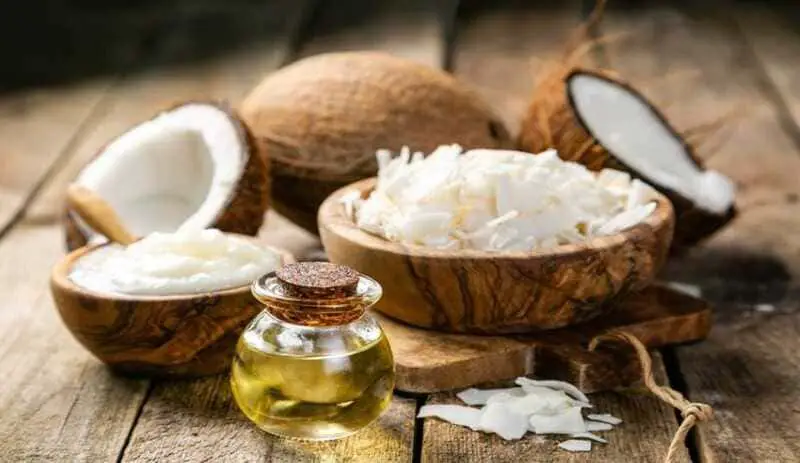Cleaning is an important part of our daily routine, and soap is one of the most common and popular cleaning products. However, many soaps contain detergents and other synthetic chemicals that can be harsh on the skin and the environment.
In recent years, a more natural and gentler alternative has emerged: non-detergent soap. This type of soap is made with natural ingredients and has gained popularity for its benefits to the skin and the environment.

In this article, we will explore in detail what non-detergent soap is, how it works, its benefits and uses, and how to choose the right one for every need.
If you’re looking for a more natural and healthier alternative to conventional cleaning products, non-detergent soap may be an option worth exploring.
Definition of non-detergent soap and how it differs from other types of soap.
To begin talking about what non-detergent soap is, we should start with its definition. Non-detergent soap is a type of soap that is produced using natural ingredients such as fats, oils and lye (sodium hydroxide or potassium hydroxide). Unlike conventional soaps, non-detergent soap does not contain synthetic chemicals such as detergents and surfactants used in modern cleaning products. The use of natural ingredients makes this type of soap gentler on the skin and less irritating than conventional soaps.

Conventional soaps, on the other hand, are manufactured using a combination of fats or oils and synthetic chemicals. These chemicals, which include surfactants and detergents, help the soap lather and remove dirt and oil from the skin. However, these synthetic chemicals can also be irritating to the skin, especially for people with sensitive skin.
Non-detergent soap does not lather as well as conventional soaps, but it is still effective in cleaning the skin and removing dirt and grease. In addition, non-detergent soap is more environmentally friendly than conventional soaps, as it does not contain synthetic chemicals that can harm aquatic ecosystems.
Non-detergent soap is a mild, natural type of soap that is a healthy and environmentally friendly alternative to conventional soaps. Its use can be especially beneficial for people with sensitive skin and for those looking to reduce their environmental impact.
Ingredients used in making non-detergent soap and how they compare to the ingredients in conventional detergents.
Non-detergent soap is made from a variety of natural ingredients, such as vegetable oils, animal fats, and lye (sodium hydroxide or potassium hydroxide). Unlike conventional detergents, these ingredients are biodegradable and do not contain synthetic chemicals that can be harmful to the environment.
Conventional detergents, on the other hand, contain surfactants and other synthetic chemicals that are used to lather and clean dirt and grease. These chemicals can be irritating to the skin and can cause environmental problems, such as water pollution and chemical runoff into drains.
Natural ingredients used in non-detergent soap making have additional benefits for the skin, as they can be gentler and less irritating than synthetic chemicals. In addition, many of the ingredients used in non-detergent soap have moisturizing and nourishing properties for the skin, such as coconut oil and shea butter.

How non-detergent soap can help maintain healthy skin and prevent irritation.
Non-detergent soap is a gentler, more natural alternative to conventional soaps, and can be especially beneficial for people with sensitive or irritation-prone skin. Within the broad universe of what is non-detergent soap, we will explore how non-detergent soap can help maintain healthy skin and avoid irritation.
First, non-detergent soap is made with natural, gentle ingredients, making it less irritating to the skin than conventional soaps containing synthetic chemicals. Natural ingredients such as coconut oil and shea butter have moisturizing and nourishing properties that can help keep skin soft, supple and healthy.
In addition, non-detergent soap does not contain detergents or other synthetic chemicals that can be harsh on the skin. These chemicals can strip the skin’s natural moisture and cause dryness and irritation, especially for those with sensitive skin.
Another benefit of non-detergent soap is that it is less likely to cause skin allergies or irritation. Conventional soaps often contain fragrances and other additives that can irritate the skin, while non-detergent soap uses natural ingredients and natural essences to provide scent.
In short, non-detergent soap is a gentler, more natural option that can help maintain healthy skin and avoid irritation. The absence of synthetic chemicals and the presence of moisturizing and nourishing natural ingredients make non-detergent soap a healthy and skin-friendly alternative.
Types of non-detergent soap.
There are several types of non-detergent soap that can be used for different purposes and needs. Below are some of the most common types of non-detergent soap:
Castile soap: This soap is one of the oldest and best known of the non-detergent soaps. It is made with olive oil and water, and can be used for cleaning the entire body, including the hair. It is gentle on the skin and does not cause irritation.
Glycerin soap: Glycerin soap is made from glycerin, which is a by-product of the soap-making process. It is gentle on the skin and is commonly used for facial cleansing and general skin cleansing. It can also be found in clear or liquid bars.
Goat’s milk soap: Goat’s milk soap is a mild and nourishing soap for the skin. It contains lactic acid, which helps to exfoliate the skin and keep it soft and supple. It is suitable for sensitive skin and can be used all over the body.
Oatmeal soap: Oatmeal soap is made with ground oatmeal and vegetable oils. It is ideal for dry and sensitive skin, as oatmeal can help soothe and soften the skin. It is also commonly used for facial and body cleansing.
Honey soap: Honey soap is a nourishing and gentle soap for the skin. Honey is known for its moisturizing and antioxidant properties, making it ideal for dry and mature skin. It is also commonly used for facial cleansing and body cleansing.
How non-detergent soap impacts the environment compared to conventional detergents.
Among the most emblematic issues related to non-detergent soap, we can mention its impact on the environment. Non-detergent soap is a more environmentally friendly alternative to conventional detergents. This is largely due to its composition, which is less aggressive and contains fewer synthetic chemicals.

First, non-detergent soap is made from natural, biodegradable ingredients. These ingredients break down easily in the environment and do not harm the surrounding flora and fauna. In contrast, conventional detergents contain synthetic chemicals that can persist in the environment for a long time and cause damage to wildlife and ecosystems.
In addition, the production process of non-detergent soap is less polluting than that of conventional detergents. The production of conventional detergents involves the use of large amounts of energy and water, and can release toxic chemicals into the air and water. The production process of non-detergent soap is simpler and uses fewer resources.
Another important aspect is that non-detergent soap is less toxic to people and animals than conventional detergents. Conventional detergents often contain synthetic chemicals that can be toxic to human and animal health, and can cause respiratory problems and other negative health effects. Non-detergent soap is a safer and more natural alternative for cleaning, especially for those with chemical sensitivities.
In short, non-detergent soap is a more environmentally friendly alternative to conventional detergents. Its natural and biodegradable composition, less polluting production process and lower toxicity make it a more sustainable choice for cleaning. By choosing a non-detergent soap, we are helping to reduce the negative impact on the environment and promoting more sustainable practices.

